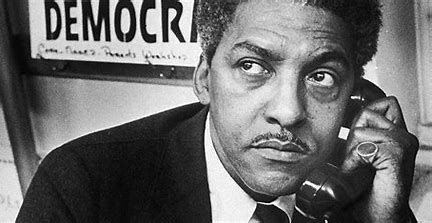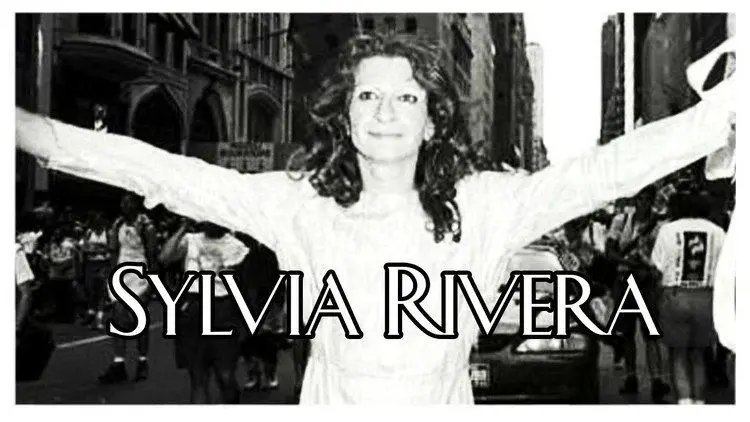Day 11 of Celebrating Pride: Bayard Rustin
- VaultBoyBrett
- Jun 11, 2024
- 6 min read
In the tapestry of American civil rights history, Bayard Rustin’s thread is woven with the vibrant colors of passion, strategy, and resilience. His life was a symphony of activism, each movement a testament to his dedication to justice and equality. Rustin’s story is not just one of triumph against adversity but also a narrative that highlights the complexities of identity and the intersectionality of social struggles.
The Formative Years: A Foundation for Activism
Rustin’s journey began in the early 20th century, a time rife with racial tension and systemic discrimination. His upbringing in a Quaker household provided a moral compass that directed his life’s work. The Quaker belief in the inherent worth of every individual and the commitment to social justice became the bedrock of Rustin’s philosophy. His education, though not formalized with a degree, was rich in the teachings of history’s great thinkers and activists, shaping his intellectual approach to the fight for civil rights.
Strategic Mind, Strategic Movements
Rustin’s genius lay in his ability to strategize and mobilize. He was not just a participant in the civil rights movement; he was a mastermind. His early work with A. Philip Randolph set the stage for a lifetime of impactful activism. The March on Washington Movement was a precursor to the more famous 1963 March on Washington, showcasing Rustin’s knack for organizing at a grand scale.
The 1963 March on Washington
The 1963 March on Washington for Jobs and Freedom stands as a beacon of Rustin’s legacy. As the chief organizer, Rustin orchestrated what would become one of the most iconic moments in American history. The march brought together a quarter of a million people, united in their demand for civil and economic rights. It was here, in the shadow of the Lincoln Memorial, that Martin Luther King Jr. delivered his immortal “I Have a Dream” speech, a moment forever etched in the annals of time, made possible by Rustin’s tireless efforts.
Navigating the Tides of Prejudice
Rustin’s openness about his sexuality in an era of rampant homophobia presented a relentless tide of prejudice that he had to navigate. His identity as a gay man was weaponized against him, used to undermine his position and diminish his contributions. Yet, Rustin remained undeterred, channeling his personal struggles into a broader fight for human rights. His resilience in the face of such adversity was a testament to his character and his unwavering belief in the cause of justice.
The Intersection of Civil and Gay Rights
As the civil rights movement progressed, Rustin began to see the parallels between the struggles for racial equality and gay rights. His later activism reflected this intersectionality, as he advocated for the rights of the LGBTQ+ community with the same fervor he had for racial justice. Rustin understood that the fight for equality was multifaceted, and that true liberation meant breaking down all barriers to freedom.
Bayard Rustin’s life was a portrait of activism painted with broad strokes of courage and detailed with the finer lines of strategy and diplomacy. His impact on the civil rights movement is immeasurable, his strategies and philosophies continuing to influence activists today. Rustin’s legacy is a reminder that the fight for equality is ongoing and that it requires the collective effort of individuals willing to stand against the tides of injustice. As we reflect on Rustin’s contributions, we are inspired to carry forward his message of peace, nonviolence, and equality for all.
Thank you for your time and reading about Bayard Rustin! Be on the lookout for a new blog tomorrow! Happy Pride!
Extras:
Bayard Rustin was a man of profound words and wisdom. Here are some notable quotes from him that reflect his philosophy and the depth of his commitment to civil rights and social justice:
On Injustice and Action: "Let us be enraged about injustice, but let us not be destroyed by it." This quote encapsulates Rustin’s approach to activism, emphasizing the importance of channeling anger into constructive action rather than allowing it to consume one.
On Unity and Community: "We are all one - and if we don’t know it, we will learn it the hard way." Rustin believed in the fundamental interconnectedness of humanity and saw the struggle for civil rights as part of a larger fight for human dignity.
On Non-Discrimination: "If we desire a society without discrimination, then we must not discriminate against anyone in the process of building this society." He advocated for a society that practices what it preaches, one that embodies the principles of democracy and equality in every aspect.
On Personal Responsibility: "People will never fight for your freedom if you have not given evidence that you are prepared to fight for it yourself." Rustin emphasized the need for personal agency and the demonstration of one’s own commitment to the cause of freedom.
On Dignity: "When an individual is protesting society’s refusal to acknowledge his dignity as a human being, his very act of protest confers dignity on him." He believed that the act of protest itself is a powerful affirmation of one’s humanity and dignity.
On Truth and Fear: "To be afraid is to behave as if the truth were not true." Rustin encouraged individuals to live authentically and fearlessly, in alignment with their truths.
On Radical Change: "The real radical is that person who has a vision of equality and is willing to do those things that will bring reality closer to that vision." He defined radicalism not as extremism but as a commitment to making one’s vision of equality a reality.
These interviews with Bayard Rustin provide a rich source of information and firsthand accounts from Rustin himself, offering an in-depth look into his life and contributions. They are essential for those who wish to gain a deeper understanding of Rustin's impact on civil rights and his perspectives on social justice.
Eyes on the Prize; America, They Loved You Madly; Interview with Bayard Rustin: This is an interview conducted in 1979 for America, They Loved You Madly, a precursor to the documentary series Eyes on the Prize. Rustin discusses the Brown decision, the reasons for increased civil rights activism after World War II, and his work organizing the March on Washington for Jobs and Freedom.
Washington University in St. Louis Repository: The repository includes a filmed interview with Bayard Rustin, which provides valuable insights into his thoughts and experiences during the civil rights movement.
Oral History Interview with Bayard Rustin: This interview is part of the Columbia Center for Oral History at Columbia University Libraries. It offers a digitized version of an oral history interview with Rustin, providing a firsthand account of his activism and perspectives.
Henry Hampton Collection - Film and Media Archive: The Washington University Libraries’ Film and Media Archive holds the Henry Hampton Collection, which contains interviews with Rustin that did not appear in the final program of Eyes on the Prize.
There are Several books and documentaries about Bayard Rustin that offer a detailed examination of his life and his significant role in civil rights and social justice. These materials present extensive insights into Rustin's personal journey, his activism, and his profound influence on both the civil rights and gay rights movements. They delve deeply into the life of one of the most impactful, yet often overlooked, figures in American history, portraying Rustin's compelling story of bravery, strategic thinking, and the continuous struggle for equal rights.
Books:
“Bayard Rustin: A Legacy of Protest and Politics” by Michael G. Long and Clayborne Carson. This book celebrates Rustin’s life and legacy, exploring his role in the civil rights movement and his influence on contemporary activism.
“Lost Prophet: The Life and Times of Bayard Rustin” by John D’Emilio. This biography delves into Rustin’s integral role in the civil rights movement, his mentorship of Martin Luther King Jr., and the challenges he faced as an openly gay man.
“Time on Two Crosses: The Collected Writings of Bayard Rustin” and “I Must Resist: Bayard Rustin’s Life in Letters”. These collections feature Rustin’s own writings and correspondence, offering personal insights into his thoughts and strategies.
“Bayard Rustin: Troubles I’ve Seen: A Biography” by Jervis Anderson. This full-scale biography profiles Rustin’s work as an organizer and a major figure in the Civil Rights movement.
Documentaries:
“Brother Outsider: The Life of Bayard Rustin”. This documentary combines rare archival footage with interviews to illuminate Rustin’s life and work as a civil rights activist.
“Bayard Rustin: The man who transformed the civil rights movement”. This video explores Rustin’s role in the civil rights movement, his challenges, achievements, and legacy.
“RUSTIN | Official Trailer | Netflix”. This film tells the story of Bayard Rustin’s activism, his work with Martin Luther King Jr., and his personal struggles.
Sources:










Comments